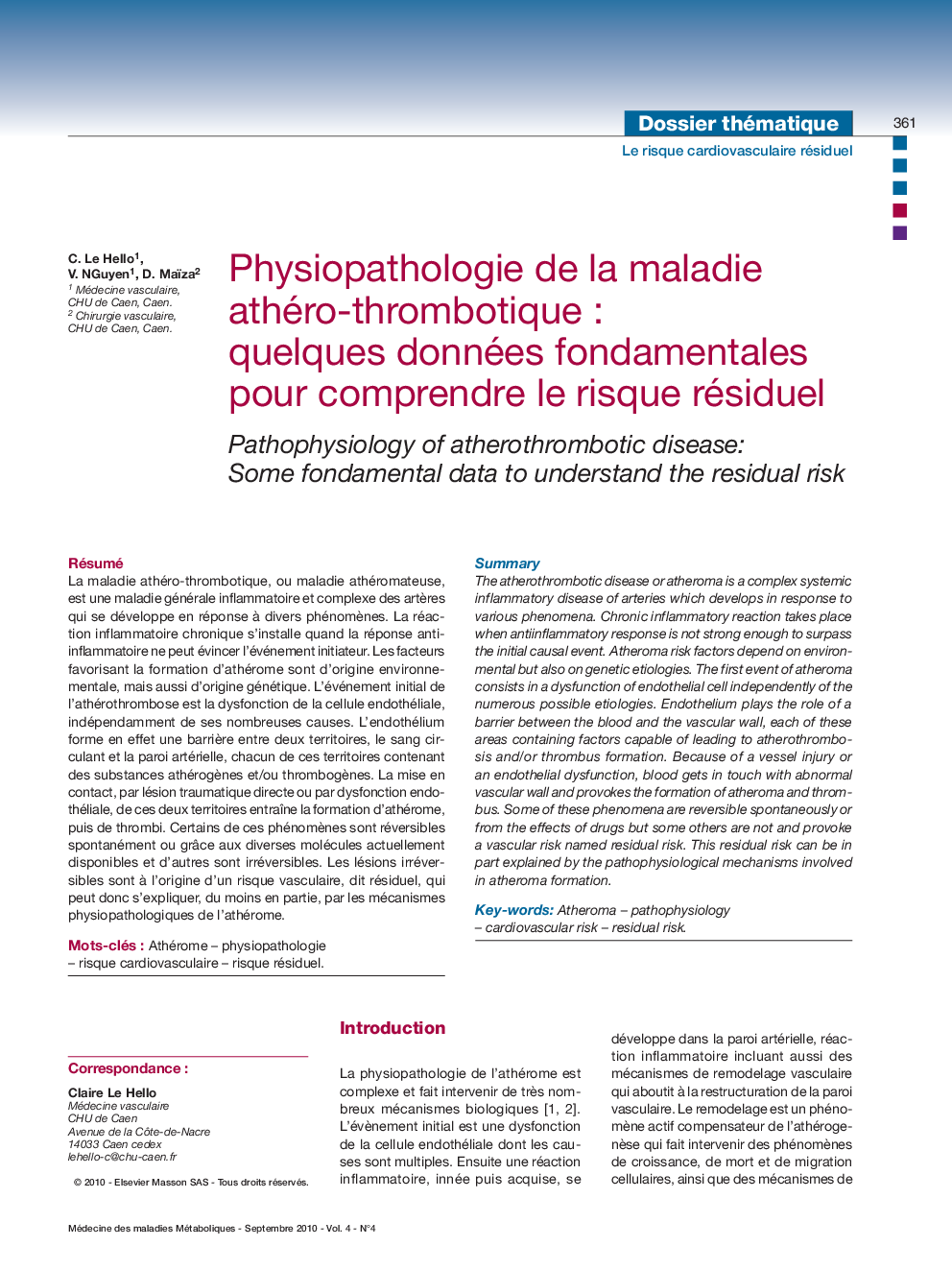| Article ID | Journal | Published Year | Pages | File Type |
|---|---|---|---|---|
| 3275752 | Médecine des Maladies Métaboliques | 2010 | 8 Pages |
Abstract
The atherothrombotic disease or atheroma is a complex systemic inflammatory disease of arteries which develops in response to various phenomena. Chronic inflammatory reaction takes place when antiinflammatory response is not strong enough to surpass the initial causal event. Atheroma risk factors depend on environmental but also on genetic etiologies. The first event of atheroma consists in a dysfunction of endothelial cell independently of the numerous possible etiologies. Endothelium plays the role of a barrier between the blood and the vascular wall, each of these areas containing factors capable of leading to atherothrombosis and/or thrombus formation. Because of a vessel injury or an endothelial dysfunction, blood gets in touch with abnormal vascular wall and provokes the formation of atheroma and thrombus. Some of these phenomena are reversible spontaneously or from the effects of drugs but some others are not and provoke a vascular risk named residual risk. This residual risk can be in part explained by the pathophysiological mechanisms involved in atheroma formation.
Keywords
Related Topics
Health Sciences
Medicine and Dentistry
Endocrinology, Diabetes and Metabolism
Authors
C. Le Hello, V. NGuyen, D. Maïza,
